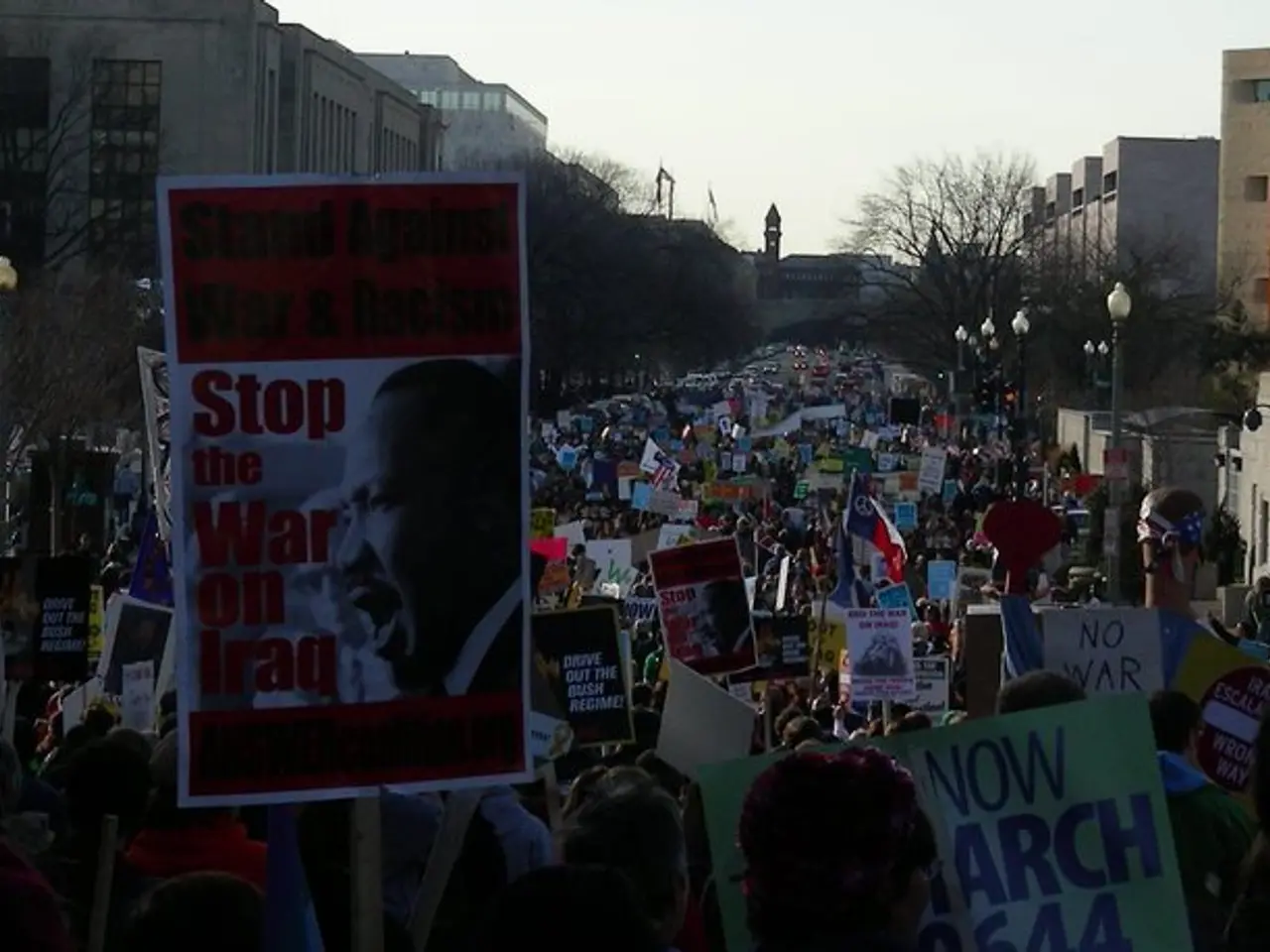Violent confrontations persist during the second day of anti-government demonstrations in Serbia, marking a significant intensification of the protests.
In the heart of Serbia, a political crisis is unfolding, characterised by intense unrest and violent clashes between anti-government protesters and supporters of President Aleksandar Vučić.
The unrest began as peaceful anti-corruption and justice demands following a tragic incident in November 2024, when a railway station canopy collapsed in Novi Sad, resulting in the loss of 16 lives. Since then, these protests have persisted, drawing hundreds of thousands over months, demanding investigations and accountability for the Novi Sad tragedy and broader government corruption [2][4].
Recent events have escalated the situation, with violent confrontations erupting in northern cities like Vrbas and Backa Palanka, spreading to the capital, Belgrade, and other cities since August 12 [5]. These clashes have been marked by the use of tear gas by riot police, arbitrary arrests, and instances of police brutality, with some victims being women and young protesters. Furthermore, supporters of Vučić’s Serbian Progressive Party (SNS) have clashed with protesters and, at times, attacked peaceful demonstrators [3][5].
Protesters have responded by vandalizing ruling party offices, notably in Novi Sad, and the government has threatened to declare a state of emergency due to what it calls attacks on the state [3][4]. President Vučić and his administration have rejected calls for early elections and framed the unrest as foreign-backed attempts to destabilize Serbia. Vučić has consistently refused to step down or significantly concede to protesters’ demands [2][3][4].
Demonstrations have taken place in various cities, including the central towns of Kragujevac and Cacak, and the southern city of Nis. In the northern city of Vrbas, clashes between protesters and government supporters resulted in injuries for dozens of people, including 16 police officers, and several detentions [1]. According to Police Commissioner Dragan Vasiljevic, the protesters in Vrbas came to attack the governing party supporters [6]. President Vučić described anti-government protesters as "thugs."
As the crisis continues, protesters are demanding that Vučić call an early parliamentary election and are also calling for the resignation of Interior Minister Ivica Dacic. Minister Dacic has stated that at least one policeman was injured in the clashes [7].
Serbia, a country seeking European Union membership, maintains strong ties with Russia and China. The current political situation raises concerns about the country's path towards EU integration and the potential for further escalation of violence.
References:
- BBC News
- Al Jazeera
- Reuters
- The Guardian
- Deutsche Welle
- Radio Free Europe
- B92
Read also:
- Discussion between Putin and Trump in Alaska could potentially overshadow Ukraine's concerns
- Massive 8.8 earthquake hits off the coast of Russia's Kamchatka Peninsula, prompting Japan to issue a tsunami alert.
- Court petitions to reverse established decision on same-sex marriage legalization
- Independence supporters in New Caledonia refuse agreement offering authority without a vote on sovereignty








